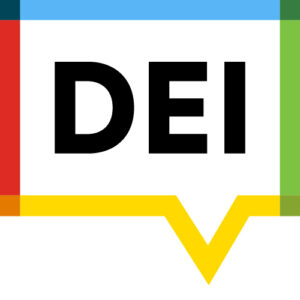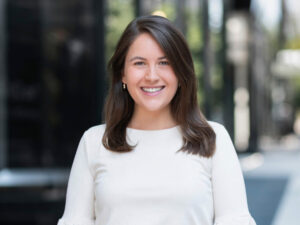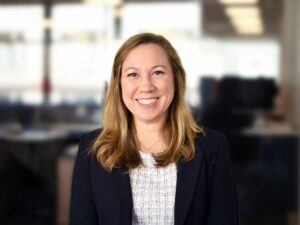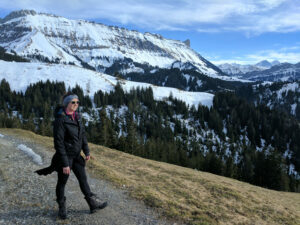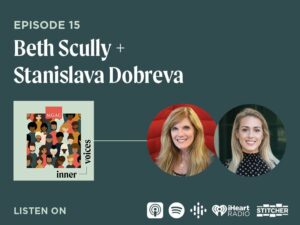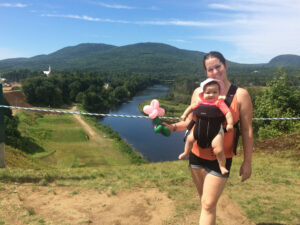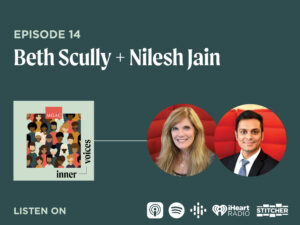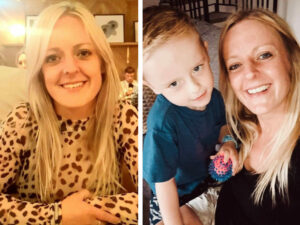MGAC Inner Voices: Episode 13
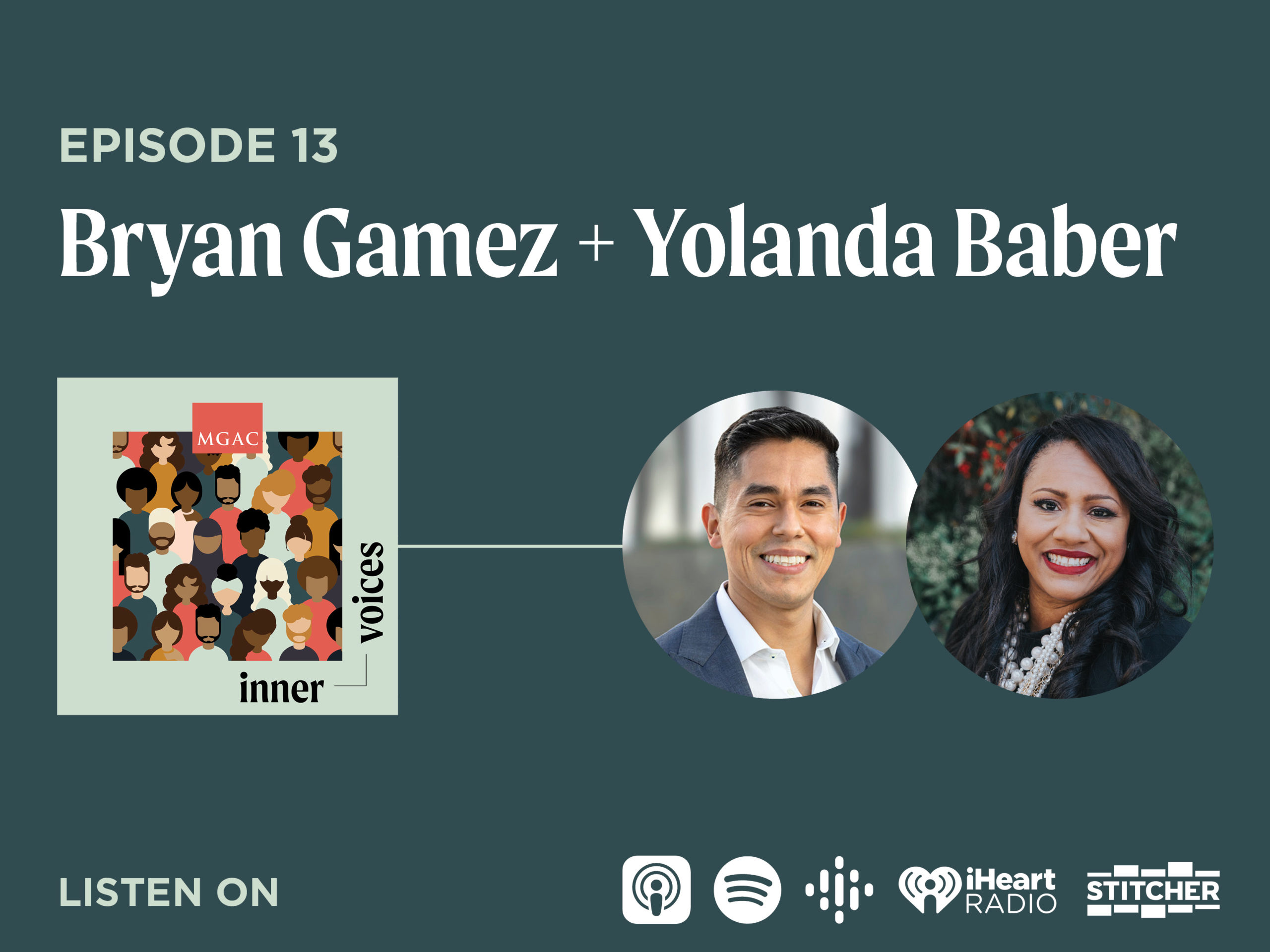
MGAC Inner Voices is an interview format podcast where a diverse mix of employees are interviewed to share their perspective on challenges they have faced in the A/E/C industry as a result of their identity—including race, ethnicity, religion, age, gender, sexuality, ability, etc. By discussing the experiences of our staff, our hope is that their stories will have newfound and powerful resonance with the audience—both to comfort others in similar situations and to encourage those in positions of power to bring about positive, actionable changes to workplace environments for all A/E/C professionals, regardless of their identity.
Bryan Gamez (MGAC Assistant Project Manager, Los Angeles) talks with Yolanda Baber (Kitchell Business Process Manager, Los Angeles) about owning your seat at the table, accountability, the need for frank and honest conversations, and the importance of instilling a sense of belonging in order to make change.
Resources
View Transcript
Transcript
Bryan: Hi, and welcome to MGAC Inner Voices podcast, digging into issues of diversity, equity, and inclusion in the architecture, engineering, and construction industry. Just as always, I want to preface this podcast by letting you know that we're not experts in all things diversity, equity, and inclusion. We just want to share our stories, our shared experiences, and discuss how together we can recreate a better outcome for all of us in the industry and beyond. I'm Bryan Gamez. My pronouns are he/him. I'm a project manager at MGAC, working and living in L.A.
And today we have the privilege and honor to speak with Yolanda Baber. She is a transformational leader in business process management, client and business development, project management, and client engagement. She has been providing project management services and business development leadership for more than 24 years, which is amazing. Her expertise is in governmental compliance, plan, check, review, permitting, geotechnical engineering, subsurface imaging, underground utilities investigations, potholing, mapping, CCTV, QAQC, construction inspection and material testing scope of services and projects.
She currently serves on the Business Development Association of the Inland Empire and is the vice president. She also serves on the Construction Management Association of America Creating Opportunities for Diversity and Equality committee, the Society of Marketing Professional Services where she's the sponsorship director and on the program's committee, vice president board of director for the National Association of Women in Construction Chapter, and the Association of Society of Civil Engineers of San Bernardino, the president-elect.
You have an incredible resume. Can you introduce yourself to our listeners?
Yolanda: Absolutely. So my name is Yolanda Baber. I go by she/her but really I definitely considered myself to be a blackxican and/or a black or Afro-Latina. That was what my nickname would be. I'm based out of the Los Angeles region. I live in the Moravia mountains. The one thing that you need to know is that I have an amazing son. I am a one only son bearer. He's 28 years old out of Houston, Texas. His name is Seth. And I've been married to an amazing husband for the last five years. His name is Steven Baber.
Bryan: I'm really happy to have you here. Afro Latina. Where are you from? Because I'm Latino as well. I'm Guatamalan.
Yolanda: My family is kind of a mixture. I think the diversity definitely has been embedded in me through my DNA. So my mother is half Italian and half Spanish and a Navajo Indian, and my dad is African-American. So I had the privilege of being raised by my stepfather who was from Jalpa, Zacatecas and so my first language is Spanish. By nature, I actually learned how to speak English in public school and so I was in ESL classes. Oh, for those who don't know what that is, it's English Second Language all the way to the sixth grade in public school so I know how to read and write in Spanish,
Bryan: You know, with someone who's as diverse as you, have you faced any challenges in your career because of your identity?
Yolanda: You'll know this about me, I'm kind of a half glass full type of person. The challenges that I've faced really have a lot to do with areas of opportunity. And so I, kind of, looked at the areas of where I was the only woman sitting at the table, the only woman who was my color of skin and that I was a single mother, right? So there's a lot of different diversities that are in there. But what I started to do is to take advantage of the diversity. And so the whole concept of "do you have a seat at the table" was something that I never fought for that spot. I created my own platform. Nobody had to invite me to the table. I just set up my own meetings and invited others to be at the table.
And so the conversations were very fluid. It was really more about knowing the knowledge. My background is in marketing and sales and business development. I've always worked in the technical industry, which means that I'm dealing with architects, engineers, mechanical engineers, you know, electrical engineers. And so they have a different flow of how they communicate.
So my challenge really was never the industry. It was more about how do I mirror and match my conversation to make them feel comfortable so that they can tell me what they need from me and how I can support them. That was my biggest, I think, challenge is understanding the vernacular and really understanding the flow of what their discipline in the industry really represented.
Bryan: You know, I really like that aspect that you're talking about. You're creating a seat for yourself. I think when we look at diversity and all the conversations I've had, there's a struggle. How can I approach a situation? But the conversation should be geared to, how can you break the rules now? You know, we want to be a rule-breaker, and it seems like you are that rule-breaker, Yolanda, and that's how you create that opportunity for yourself. I think that's the way we should gear a lot of the conversations moving forward.
You talk about creating these opportunities for yourself. Did you ever find that, when you were younger in your career, that it was more of a challenge? Were you always a go-getter? And would you ever actually give your younger self any advice to help with that starting off?
Yolanda: I would definitely tell my younger self is that don't ask for permission. And so you don't need to ask for permission. You just need to move forward. I do think it's important to also give really, I'm gonna say, credit, and I'm gonna say support and really say that who invited me to the table and brought me to the table was another man. Richard Corey, who was my initial mentor of the entire industry, from Corey Engineering, he invited me to the table. He said, "Hey, Yolanda, I need you to take advantage. I need you to take the lead on these initiatives for our organization. I need you to break through some of these ceilings that I've been experiencing. I need you to do to step into space and tell me what we can do to roll and expand our market sector." Our whole market share was really the area of opportunity. Basically, it told me, "Here's where I want you to grow. Here's where I want you to move forward." He basically gave me permission to shine. He said, "Hey, I can't attend this meeting. I need you to go represent me. Hey, I'm coming with you, but I need you to lead the whole meeting." I do want to say and I want to preface this that I think it's really important now that I get to sit at the table. I get to invite other women and other men to join me in these efforts. But the reality was is that I had to be invited in order for me to sit at that table initially.
Now, if you were to ask me today, I would probably not ask for permission. I will just create what is what I normally do now. I create opportunities. I set up meetings. I'm the one saying, "Hey, I'm going to spearhead this initiative here. I'm going to spearhead here," and then I invite people who I think would champion those efforts and support me in making those things done. I think honoring the privilege of working with a man who was literally... Richard Corey was only about seven or eight years older than me, but he had so much wisdom about the industry, and I think this is really important because who you play with and who you put in your inner circle has a lot to do with what your end results will become. He said, "There is no limit." He spoke unlimited conversations to me every day. He said, "There is no cap on your income."
Bryan: I love that Yolanda.
Yolanda: As a single mother, raising a young man who liked to eat a lot of food and was growing like... I don't know. I don't know. It seemed like he grew out of his clothes every three months. And so when he began to speak limitless opportunities for me, it gave me permission to step into that space. And every time I get an opportunity to tell the story, I want to tell the story because there was no women at the table 25 years ago. When I joined, I was always the only one, and it was almost like I was invited as a special guest to the meeting because they wanted to get my insight.
Bryan: It's great for someone like me and also to some of our listeners to hear that you have created and forged your own path, especially with Richard. It sounds like he was a great mentor that a lot of people are seeking these days. And sometimes I think people have a tough time navigating that path by themselves, and they usually think that they're navigating the path by themselves, but there are people out there that are willing to help you out. Was there ever a time when you were starting that you were scared, that you were scared to speak up, even though you were given, it sounds like, these great opportunities? I guess my question really is geared to our listener who may be an Afro Latina, you know, single mom. How can she create that opportunity for her if she's feeling scared to sit at that table?
Yolanda: I think the one thing that's really important is that, if you've been invited to the table, you need to own it. If you were invited to that meeting, you were asked to be present, that means that you were there to contribute and to add value, trust your value, trust that you are worthy and that you are enough.
Bryan: And don't doubt yourself. That is something I tell my girlfriends all the time, Yolanda. I say, if you think something's off, then you're probably right. You're probably correct that something is off. It's not because someone is questioning you. It's because you need to trust yourself. And they're like, "You're right, Bryan." I'm like, yeah, because I see this too often with a lot of my girlfriends who are at different industries, and a lot of my best friends are girls. I develop great connections with women. I think in my career I've been mentored by women and I just trust them. There is almost a sixth sense that women have about intuition, and don't doubt yourself because that creates fear, and that's when you won't be able to flourish in the workplace or even personally. So I think that's really great advice, Yolanda. Do you have any advice for people that have ever experienced microaggressions in the workplace or have you ever experienced any microaggressions and how did you deal with that?
Yolanda: Can you define? Because I don't want to assume that I actually understand what microaggression means.
Bryan: Sure. Have you ever felt like you were discriminated against because of your gender identity, your skin color? Did you ever face it head-on and how did you deal with that situation?
Yolanda: Thank you so much for clarifying that for me. I think, in the very beginning of my career, I did not pay much attention to microaggression, okay?
Bryan: Interesting.
Yolanda: I did not, and I'll tell you why.
Bryan: Wow.
Yolanda: And I'll tell you why. I honestly didn't know that anybody had a problem with me.
Bryan: I love that. You know, I have to say to our listeners, Yolanda is radiating this confidence and she is confident, but I love that because I think that we need that self-confidence because sometimes I even get into my own head but continue. Sorry.
Yolanda: There's a level of naïveness in me that I have to tell you that everything in life to me, I always practice this, is that everything that is happening, everything I'm experiencing is a positive intent. Nobody's going to come... Even though the world is cynical, I approach my life that way, that everything I'm experiencing is a positive intent. So, whenever my brain goes to something negative, I immediately auto-correct my thought process to look at what is it that I'm supposed to be getting out of that conversation. In my professional career, because I wasn't paying attention for the clues, it didn't even bother me that I was around all men that were plus 50 years old who've never actually been around people my age and have never really been around people like me. They never worked with people like me. And they will never say that to me.
But what made me or confirmed to me that I was different than them is the way they ask questions about me. So they were very cautious, right, until they figured out that I was just like anybody else and that I wanted to express who I was and I wasn't scared to share who I was. And so I think giving them permission also to ask and also to engage with me. I'll give you an example. I was sitting at a table one time and I probably was in my early 30s. And I was sitting at the table with a large transportation agency, and the gentleman that was sitting across from me was probably in his mid-60s. He was part of the Civil Rights. Like, he participated in it. He knew about it. He understand the Civil Rights. He knew more about the Civil Rights than I did. Not only from the standpoint of experiencing them because he grew up with my mom's generation, right? And so I began to ask him, how did he feel about the Civil Rights Movement? How did that impact him as a person? In fact, how did that shift and change who he was as a person or having to engage with the population at hand, right? And so he said...he began to be super transparent. He was also a foreigner. He looked Caucasian, but he was a foreigner, right?
And so as we begin to talk, he says, "I felt a lot of what you felt." And I was like, "What?" He's like, "Yes." And I go, "Tell me. Talk to me about that." This guy ended up becoming one of my closest friends, right? And to this day, we're still friends. He's been retired now going on 10 years. And I think one of the things that I thought was so interesting was that what I do to be the difference-maker in he and I and the fact that he didn't have the same skin color as me did not matter. I was having an actual conversation with him, and that made him feel comfortable. He felt unassuming. He was open. And by the way, I did ask for permission for me to ask those questions, just so you know. So I gave him permission to ask him whatever he felt he wanted to ask me and then I asked him if it was okay if I asked him more about. And I said, "And if you feel uncomfortable about anything we're talking about, then just..."
So this kind of went on for years. We would meet once a month, and we would talk about our family. He ended up coming over to my barbecues at my house. I ended up going to his family events that he was hosting. I got to know his wife. I got to know his children. And so I feel like sometimes whatever you deem to be a difference-maker actually is what actually brings us together. What I found is that the differences were never as more important than just communicating. And what I found is that the culture match was what brought us together. The fact that he and I got along was because we saw something in each other that we liked. There was something that we felt comfortable to have the conversations.
So I think if you remove the color, if you remove the biases, if you remove religion, and where you grew up, and, "I'm from San Gabriel Valley. I was born and raised in West Covina, California," which is my story, right, if I take that all out of the equation and just have an honest, open conversation, there's so much more that brings us together. There's so much commonality as human beings. So the microaggression that I experienced, I actually use it as a leverage, and I would just have an honest conversation, and I would say, "Hey, what would you advise me? How do you feel that I can do my assignment better to grow my market share? What do you think I should do?" And the more I begin to ask the questions, they felt like they were coaching and training me. And so because of that, they became really good mentors to me and great friends. So I think looking at a microaggression situation as an opportunity to have a conversation about it.
Bryan: Yes. And you know what's interesting? I was just listening to NPR yesterday. Do you know Eartha Kitt, that woman?
Yolanda: Yes, yes.
Bryan: So, her daughter has written a memoir, and she talked about this anecdote. They were in South Africa, and Eartha Kitt is a more light-skinned black woman and very famous. And we have her daughter who looks almost white, very blonde hair, very light-skinned. And there were at an amusement park in South Africa. The amusement park didn't know who Eartha Kitt was, and they discriminated against her. They said, "You need to leave." She said, "Okay, well, I'm going to leave," and took her daughter.
And then she does a photoshoot and the headlines were like, "Eartha Kitt removed from the amusement park," whatever. And Eartha Kitt then said, "I could have made a huge scene at the amusement park. I could have said, 'This is completely wrong,' " but she knew that she was going to leverage that situation and create a bigger opportunity for the community by saying in the headlines, "You know, what can this amusement park do?" The owner said, "I apologize. What can I do?" and she said, "My daughter really wants to come back. Can I bring our friends?" She went back to the amusement park and she brought back children of all races, and it was that opportunity that gave much more leverage in that situation and also did so much more good to the community and also to the movement.
I think what you're saying hits the nail on the head, that we should leverage all those opportunities, understand what is the positive impact I can make later. I want to know more if you ever felt unsafe in any work environment. Or, have you ever seen anyone be treated in an unsafe manner, and have you ever said anything?
Yolanda: So you have to know this about me is that I'm a natural advocate. I'm the oldest of the kids. So I have a brother whose name is Jose, and I have a sister named Nikita. I am the only one in my family that's African-American. My brother and my sister are both Hispanic. Jose had blonde hair and green eyes. He kind of looked like a Gerber baby. He was a towhead baby, and he just was super sweet, just a really soft spirit type of young man. And as we were growing up, we moved from San Gabriel Valley to San Diego. We were living in Logan Heights. It's not the safest neighborhood, but at that time, my brother was the minority. He looked like the minority of the group, right? So at a very young age, I was always a protector of my people. I always stood up for my family. I stood up for the people that I represented. So from a very young age, I was usually the one protecting my brother and/or my sister. Even my sister now who's a lot more mature, I'm still protecting my sister. I think it's just a natural thing that I was...I was gifted with that gift to do that.
I work around a lot of young ladies who are either an internee or maybe they might be five years in their career. And so they'll come and say things to me like, "Hey, this is what's happening. This is what I'm experiencing." And so immediately my antenna goes up. I'm like, "Hold up. When did that happen?" And so I begin to ask questions. And I'm asking for the purpose of getting intel so that I can go back and advocate. So I think the thought process is that, as an individual person, I can't think of any one time that I felt fearful of anybody coming at me any kind of way, because I was always the type of person that I demand respect. And when I step in the room, people know I'm present. So I've never felt like a threat by anybody or anything of that nature, but I have become an advocate for others.
And so if you're the person who's being abused, then recruit somebody who can support you with that process. Sometimes you may not have the voice or you may feel that you may not communicate it correctly. On your team, everybody has an advocate. That's the person you want to confide in. You want to go and talk to them about what's happening and find out how you can mitigate or create a safer environment for you individually. It is okay to ask for help if needed.
Bryan: I think everyone should feel safe enough in their work environments today to be able to reach out to that inner circle and say, "Hey, I want to speak to you, and I want to be able to create a better, safer work environment for everyone, not just myself. Because if it's happening to you or anyone else, it could be happening to a lot more other folks." So that's always an important step to take. And this, kind of, just brings us to the big question, why we're having this conversation. Why is diversity, equity, and inclusion so important in the workplace? Everyone's talking about it now. We have committees forming, and also with 2020, the movement. There's Black Lives Matter. Why do you think is it now today that we are finally taking a larger step in trying to create a more equitable environment? Why is it so important?
Yolanda: I think that we've always been practicing diversity, equity, and inclusion. What I've seen in the last few years is that we're actually living it. So there's a difference, right? So, I think what happened is you and I actually were forced to sit in front of a computer for whatever amount of timeframe during the COVID-19 series. And so all of a sudden, all the distractions were all, kind of, eliminated because now we couldn't do certain things. Now, the attention was what we could see on the screen, what we can see on our phone, what we can see on our iPad. So this whole injustice of what was happening to Black Lives Matter, it basically was now put on the forefront, and now everybody and anybody in the environment was now watching it, even the people who were practicing it and the people who were against it, right? There's always a pros and cons to all that was happening.
But then people started thinking like, "If we allow this to happen to them, then they can do it to us." So there was a "us" movement of different sorts. But what started to happen is, like, if a police officer can smother somebody to death in plain sight, in a plane environment, in the middle of the street, in the middle of the day, that means that that can happen to us. So it, kind of, personalized the pain. It personalized the violations. It personalized what we were seeing. And so now it was like an outrage and an outpour. It's like, "Oh, my God, we have to do something about it." I mean, it got people to go outside and protest in the middle of a COVID season because of the unjustice that they saw, but I think it's because they started to see the humanity and the violation of human rights being displayed in such a vulgar manner that they felt that they had to move into action.
I still feel like diversity, equity, and inclusion is a topical conversation. In some organizations, it's a very, I'm going to say, entrenched conversation. Like, there is a active flow of diversity, equity, and inclusion happening within the organization, but I still feel that there's one component that we have a tremendous opportunity to do something about. It's this whole conversation of belonging. So, here, we have some who are like, "Okay, diversity, we understand by definition what diversity means, right? We know what it looks like to practice inclusion. We understand what the word equity means, right, and making things equitable and being accountable for that." But then this whole conversation right in the center that talks about belonging.
So think about this, Bryan. So I say to you, "Hey, hey, Bryan, let's get together. We're going to go do Taco Tuesday in Downtown and East L.A. We're going to go to the taco [inaudible 00:23:02], whatever your favorite place is."
Bryan: Yes.
Yolanda: Yes, right? And we're going to meet up, right? And so you and I get together, and we do life together. We talk about our friends, our family, you know, who we love, who we care about, all that fun stuff. But now this is what I say to you, "Bryan, I want to do a really special happy hour, and I want you to help me pick the signature drink. I want you to help me pick who should be attending. I need you to help me pick the restaurant that we're going to be going to. And by the way, I need you to invite your personal friends to also come." That is true belonging. I feel like we're on second base still, inching to get to the third base with this whole DEI thing, and I feel like what we're missing on the third base is having the conversation of belonging. How will we take the masses of our organization and the people that we're engaging on a daily basis? But how do we make it personal?
Bryan: And how do you think that we do that? I think that DEI has come a long way in the last two years. And you're absolutely right. There's a difference between practicing it and living it. I still feel that DEI is not being fully committed to by companies. So what do you think is a good strategy for senior leadership or companies to create that sense of belonging for everyone? When it comes to equity, I also think of pay. I think that pay should be equal. It's always on the news, right? It's been on the news for two years or whatever, more than two years. Last two years, it's been flashing on the news more often, but it was on the news last night. And I thought to myself, what can we do? So what do you think?
Yolanda: Those of us who are in the industry and we get to decide what people are going to get paid for the services that they provide, we need to contend and pay them equal pay. If you are a hiring manager for your firm, it could be for your firm, it could be for a law firm, it could be somebody in the AC world, no matter what job, you must pay men and women the same rate. I think the human resource community, the hiring managers need to contend for their people. I think the person who's deciding what rate should be paid should be paying the same equitable amount of what our counterparts are making. If everybody made 100% commitment to do that, that will immediately change.
Second is evaluate your pay structure. If you already have people who've been working for your organization for 25, 30 years, and they're still earning 40% less than their counterpart who just started five years ago, then there has to be an equitable research and analysis done on how do you get that person who's earning less money with way more experience. And there's companies that I'm aware of that are actually doing that right now. They're actually having these conversations about pay and equitability when it comes to pay structures.
So, first, number one, if you're the hiring manager, ensure that that is 100% being practiced. Number two, and if you're in an organization where you have the seat at the table to open the conversation with the CEOs, and CFOs, and human resource directors to say, "Hey, we need to open up our books. Let's talk about what everybody is earning." And if we need to upscale, meaning that if we need to keep people, that's why there's so much movement right now. People are moving from company to company. Most of them are chasing the opportunity of earning what their counterparts are making.
So, let's eliminate that because we need those people to stay connected in the organizations that they're in because there's intellectual capacity that we lose every time somebody leaves, and it's costing us a lot of money. If it's us taking the cost analysis and the pay structure that we currently have in place, and find where there's equitable differences, and can we now take the person who might be making 40% less, can we make a commitment that in the next five years, we would increase their pay 10% to get them to in the next five years? And can I tell you something else? We need to have a conversation with that employee and let them know that that's what our intention is to do. It'll immediately let them know they are important to us.
Bryan: And give that sense of belonging that we've been talking about.
Yolanda: I'll admit I've chased paper, but here's the reality. After I have done all that I've done, today, my number one goal is my legacy is to have a life that really matters, so that when I leave this industry, I can get the "well done." You've done all that you've done, and there's a legacy that is driven based on my efforts and what I have brought to the table. And what might your contribution is—I'm going to say this to the audience—your contribution is important. It is just as important as mine or Bryan. All of us have a level of contribution no matter how big or small you may think. You add value to the whole equation of what is happening. So I just want you to know because of that, what you think, what you say, your behavior matters.
Bryan: One hundred percent. We want everyone to know that they matter. Trust your instincts. Trust your intuition. And I'm really happy that you're diving into these strategies, Yolanda, because I think in past conversations, I think we have struggled to come up with concrete actions. And I think that companies aren't taking that forward. For example, my friend, they don't want to leave the company, but they almost feel like they don't have an option, they don't have a choice because they don't feel like they have that sense of belonging. They have a disappointment and then resentment towards a company. And I think when you have an employee that leaves a company and has resentment, I think that actually does a lot more damage to the reputation because word spreads.
Yolanda: I really believe that all of us who are running the organizations and if we're in an area of leadership, that we're to champion DEI, that we're saying diversity, equity, and inclusion and belonging counts, and it's important. And it's not just talk about, like, we have matrix. Llike, we met the requirement. We must have this amount of women, this amount of multiracial people in the mix. As a collective group, how do we make ourselves accountable for that process?
I'm really, really blessed. After all these years, I finally feel like I've found my right culture and the right space that I'm currently in. From the president to the vice president, to the operations people, to the person that's working as a project manager in the field, everybody has embraced this whole diversity, equity, and inclusion conversation. And it's not just lip service. I have been here. I see it in full action. Like, there's committees that just talk about engagement. There's a group of people who just talk about how do we make the environment in our workspace fun. They actually have real means. Like, they actually talk, like, what can we plan for the next two, three months that's going to make our job fun? There is space for that.
Sometimes we will say, "This might be an anomaly. This might just be happening for you. I want to challenge you. Have you been practicing diversity, equity, and inclusion? Have you been practicing biases and not know that you're practicing them?" I'll give you an example. Most people don't even assume that I speak Spanish and that Spanish was my primary language because they make the assumption because I have braids and I'm expressive, they kind of lump me in one community. And when we start talking about biases, I've been wearing my hair this way probably for 15 years. I love that it's long. It's easy. I can put it in a ponytail.
Bryan: It's beautiful, Yolanda.
Yolanda: I love it. Okay. Well, listen, I have a bias. I will not part my hair in the center of my face because somebody told me my nose was too big. I was probably in the third grade. My teacher said to me...
Bryan: Your teacher said that to you?
Yolanda: I had two ponytails with a big [inaudible 00:30:48] bun at the end, you know, with all the colorful stuff. You know, I'm definitely an '80s '90 baby, right? So I had the big ponytail and she said, "Oh, wow. Your nose is really big." I never even knew my nose was big compared to everybody else but now, because she said it, I started looking around the room. So biases and things that you experience sometimes work our thought process. I mean, even how we style ourselves, how we wear clothing, because somebody told us that the skirt was too short. Now that might've been true, okay, but we still see short. That might've been true, but that doesn't mean you need to modify your whole outfit. That doesn't mean that you have to modify your look in all environment.
I think if we challenge ourselves individually, we'll start to figure out that there's some individual biases. Even if you're a part of a community that's been marginalized, right? You even have some biases not realizing that it's just something that's been innate in you. I think every single one of us, if we all raise our hand, we do have some biases. We do have culturally some differences and things of that nature but just acknowledge it. I think it's okay to just acknowledge it and not let that be the determining factor of how you engage others.
Bryan: It's an exercise in self-awareness. I find that some people struggle in understanding their surroundings and their own biases. So it's a really powerful exercise that people should look into, and it helps determine whether or not you are practicing what you're preaching is the point that we're trying to make here. These are all really inspiring, Yolanda. The more I'm speaking to you, the more I find you so inspiring. I think that all our listeners could learn so much from you. Sometimes it feels like there are people that aren't advocating for you, and it's really nice to speak with someone like you who has seen it and is practicing it. So I just want to take this moment to just thank you because it's really important, the conversations to have. Where do you see the industry in 10 years?
Yolanda: I only see it being better and getting better. So the whole month of March is Women's Celebration Month. We are all celebrating women. If you ask me, that should be a 365-day challenge, celebrating women, right? Last week was focused specifically on women in construction. The boots on the ground to the person who's sitting in an executive seat, every single woman should be valued for their contribution overall. But I think what's so key is that it's not just that they should be acknowledged just for the month of March. I'm not saying that men shouldn't be celebrated. I think men and women should all be celebrated daily for what they bring to the table.
I was thinking about this the other day is like, how do you show people that they bring value to the table, that they're special to you? You need to tell them that they're special to you. For the L.A. Orange County region, I am the vice president for the National Association of Women in Construction. So we host WIC Week, which is every single event is tailored around women in construction being featured. We talk about, you know, their contributions. So it was really a platform to really elevate and really celebrate women in construction, right?
And so, as we were meeting, mind you, it was probably one of the best event that I have been to in the last couple of years. And can I tell you what the real juice came for me was when I was pulled to the side and somebody said to me, "What I heard today changed me. I am going back home and re-evaluating what I'm doing." I really, really appreciate what this person said. I appreciate how I felt when I stepped into the room. I really appreciate the fact that I felt welcomed. If somebody were to say, "Okay, what is the legacy you want to bring?" that to me is the secret sauce is what imprint are you leaving behind or are you pouring into people right now. That is what really matters.
Bryan: The empathy that you're showing, the confidence that you're preaching and you're exuding, and just everything you're saying, you are practicing it. I think that in this industry and I speak for myself, I struggle with meeting individuals that are as powerful as you are. And powerful, I mean in terms of, like, self-empowerment. I feel empowered to do more change in this industry because I know there are good people in this industry like yourself. And I think a lot of our listeners are going to value that. You bring a perspective that is so totally unique, that is going to help others chase resources and understand what those resources may be. And I think maybe what would be helpful is if we can share what those platforms are and what those resources are on our website so that we could help others, because I think in 10 years' time, I do think that our industry will be completely different. I think there are going to be several mentors. There's going to be resources groups in every company that are going to help others achieve their goals because they shouldn't be prevented from achieving anything just because they think that there's a stigma. This is what we're trying to create here. What are your final thoughts on this?
Yolanda: Outside of our careers, let's just kind of remove the titles, remove the job, remove the degrees, remove your social status, you know, what zip code you live in, what kind of car you drive, okay? If you remove all the masks and all the stuff, when it all comes down to it, we're human beings. We're flesh and blood. We're human beings with a real heart and a real sensitive spirit. We're really created in such a special way. If we're living in our most authentic life, how we do things at home is how we're going to do things at work.
In my mind, I always felt like I had to behave a different kind of way in my work environment. My core values didn't change when I went to work. If I had bad core values at home, I'm going to have bad core values at work. So what I found is that I didn't need to live a different lifestyle. It took me a while to get there. I don't think that if we had this conversation 20 years ago, that I would have answered the questions you shared with me the same way, but I do feel that today, I think it's important that however it is that we do one thing is how we're going to do everything. Whatever your strengths and weaknesses, areas of opportunity for growth, your threats, all the SWOT analyses that we talk about in the business, we have to practice that for ourselves.
If there's something that you do naturally, that you can do one, two, three, that's your highest, best use of your time. If it's something that you have to think about and you have to go like, "Oh, my word, it's going to take me a whole week to process," that's probably not the area of expertise that you should be in and stop forcing yourself to become good at that area. You don't have to. I can say that after 25 years, I can say that. I remember when we were having the conversation about board assignments. I don't have no business being a treasurer or a secretary because I'm gonna spend all the money and I'm not gonna take notes. It's okay to say that, you know? So when they ask me, "Well, what assignment do you want to be in?" I was like, "Well, I can't do that, I can't do that, but I can help you with this. Well, I could do that." Whatever genuinely makes you smile that you enjoy doing, then that's what you should be doing every day.
I think that if you take the position on an everyday basis, that people are watching you, people are learning your good and your bad behaviors.
Bryan: Yes. Mm-hmm, mm-hmm.
Yolanda: Now, do you want your legacy to be greatness and duplicatable and moving forward, or do you want it to be something else? If you're an intern that is listening to this podcast, you're an intern, you just started working for somebody in the industry or you're the person who's been in the business 5 years, 10 years, 15 years, I think it's so important for you to know thy self. You need to know who you are and what you do best and go do that. I just want to empower you and challenge you to be your very best at what you do well, and all the doors will be open because it's something you naturally know how to do. So opportunities are going to be knocking down on your door as soon as you get comfortable in that thing that you know that you have the best ability to excel in.
Bryan: And when you live your most authentic life, you're going to live your most passionate life. You're going to follow your passions. And as Yolanda said, the opportunities are going to keep flowing. I'm going to misquote it, but one thing that Oprah has said is we all want to be heard. We all want to know that we matter. And it all just begins with communication and listening to each other. These tips that you have given, Yolanda, are so important. I mean, you are the epitome of empowerment, I would say. And I'm really happy to have had you on our podcast.
And with that, Yolanda, I couldn't have had more of an amazing conversation with you. You are absolutely amazing. You're so stunning. I love your braids, and you have a beautiful nose, so I don't know whatever teacher said that. So, thank you again for joining us.
Yolanda: Thank you for having me.
Bryan: And, everyone, thank you for listening to this episode of MGAC Inner Voices. We hope to be able to provide some useful links or resources for you in case you have any questions. And with that, just check back next month for our episode.
